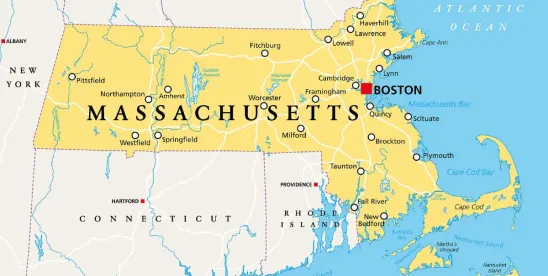On June 10, 2024, Associate Justice Jeffrey Karp, of the Massachusetts Superior Court, Essex (the “Court”), issued an important—and, to many licensed cannabis businesses in Massachusetts, surprising—ruling in the case of Haverhill Stem LLC vs. James J. Fiorentini, that the new Host Community Agreement regulations (See Chapter 180 of the Acts of 2022, “An Act Relative to Equity in the Cannabis Industry” (the “New HCA Law”)) promulgated by the Massachusetts Cannabis Control Commission (the “CCC”) do not apply retroactively to the Host Community Agreement (the “Stem HCA”) entered into in 2018 between the City of Haverhill, Massachusetts, (the “City”) and Haverhill Stem LLC (“Stem”), a licensed cannabis dispensary.
Therefore, the Court held that the Stem HCA is governed by the language of G.L. c. 94G and 935 CMR 500 et seq. as in effect at the time of entry into the Stem HCA (the “Old HCA Law”), such that the Stem HCA is not governed by the New HCA Law.
The Court also held that the Old HCA Law does not require the City to document the “reasonably related costs” imposed upon the City by Stem’s operation at any time prior to the expiration of the five-year community impact fee (“CIF”) period as a condition to the City’s right to collect annual CIFs from Stem during said five-year period.
While it remains to be seen whether the Haverhill Stem decision will be appealed and, if so, whether such decision will be upheld on appeal, this decision is a disappointing result for many licensed cannabis businesses in Massachusetts that expected the New HCA Law to apply retroactively to their existing HCAs.
Many licensees in Massachusetts have complained over the years that CIFs—often requiring payments to Host Communities in excess of three percent of gross sales—have been some of the greatest financial challenges for these businesses, particularly in light of the fact that such CIFs are not tax-deductible expenses due to Internal Revenue Code § 280E. Many licensees have faced difficulties making these payments over the years.
Recognizing the need to reform the HCA fee regime, the CCC promulgated New HCA Law, which became effective on October 27, 2023, providing, in relevant part (and without limitation):
- A prohibition against municipalities and towns requiring that the CIF be a certain percentage of the licensee’s total or gross sales as a term or condition of an HCA.
- A prohibition against demanding fees in excess of three percent of the licensee’s gross sales.
- A requirement for the CCC to review and approve each HCA as part of a completed marijuana establishment or a medical marijuana treatment center license application and at each license renewal.
- Authorization for the CCC to provide deficiency notices and information requests in connection with its HCA review if the CCC determines that an HCA is not in compliance with the New HCA Rules.
- Extended the CIF period from five to eight years.
Further, Massachusetts operators are expressing great concern with the Court’s interpretation in Haverhill Stem of the New HCA Law to disclaim the requirement for host communities to document the “reasonably related costs” imposed upon such host communities prior to expiration of the five-year period in which host communities can collect CIFs.
It is difficult to comprehend why the cannabis businesses that are expected to pay the host communities for the costs imposed on such host communities for operation of such businesses should not be entitled to evidence of such costs imposed on the host communities.



 />i
/>i

